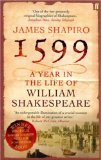That, roughly, was what James Patterson said on last night’s edition of The Verb, Ian McMillan’s always entertaining discourse on matters literary on BBC Radio 3. Fortunately I had timed the washing up to catch Patterson’s thoughts on writing, though this also meant I couldn’t capture his exact words because my hands were in the sink. Still, if phenomenally successful ‘commercial writer’ (as he modestly described himself) finds sentence-level work harder than creating block-buster plots, where does that leave all the carefully-structured word, sentence and text level work in the literacy strategies?
Just where they were, I suppose.
(And, yes, I could listen again online to The Verb to discover Patterson’s exact words – but hey, sentences are hard and it’s easier to tell you to that yourselves. You’ll enjoy it.)


